Admittedly that title was a bit of an exaggeration. But allow me to elaborate:
It’s not so often that I run into the predicament that is the American Dream. The one that drives people to work hard, so they can get a promotion and work even harder. It never seemed like a particularly satisfying hamster wheel to me, particularly when the individual’s interests aren’t even part of the equation.
So it’s more often that I encounter the other side of the glass, where the expats from all walks of life have cast off the reigns of the so-called dream and embraced a different sort of living, one in which their passions have been reignited, and their appreciation for experiences has long since overtaken any desire they may have had for toys.
It’s their stories that reacquaint me with the American Dream that I’m supposed to be living; the one in which consumerism drives an entire nation toward acquisition of material possessions and prestige.
The American Dream:
We’re told we need a fancy car, new shoes, a big house, a flatscreen TV, a timeshare in Florida, and a 16-person dining table. Otherwise, we won’t be happy.
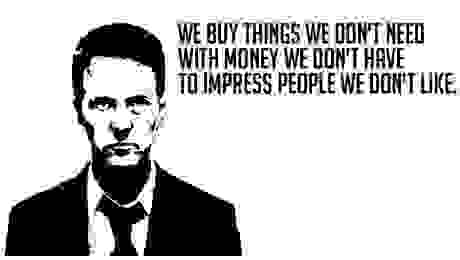
At least, that’s what I’m told. I feel so detached from the American Dream that I barely recognize its existence. But whenever I’m near a TV, the immediate barrage of celebrity gossip, blaring commercials, who-wore-it-better discussions, and television presenters that sound more like auctioneers than informers, bring it all rushing back. This is what most of the country thinks is “normal.” An endless circus of superficial nonsense.
Consumerism is American culture. It’s sewn into the fabric of our national psyche. The American Dream is a big house, a nice car, a white picket fence, a nice TV, and an outdoor pool.
Notice anything? 100% of those “dreams” are material possessions. Is that really a dream worth dreaming?
It is, of course, wrapped hand-in-hand with economic opportunity, and political equality, which have long been part of the American Dream as well. But anyone who’s been paying attention to the American landscape in the last 30 years will tell you that neither of those areas has been looking good lately.
The current state of the American Dream
So what have we got? Compared to many other modern countries, Americans have:
Longer working hours:
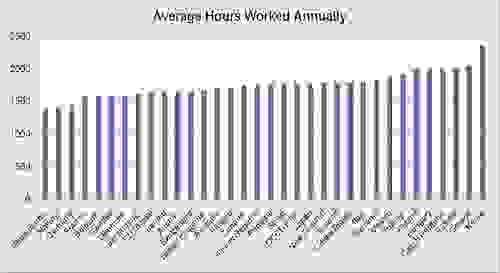
And shorter vacation time:
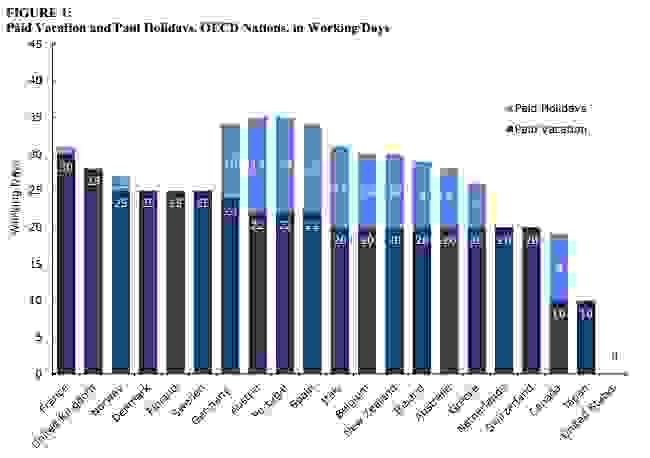
…than pretty much any other modern country.
And it’s not just vacation. It’s also sick days and parental leave. Americans get a legally mandated zero. Even Libya gives new moms more paid leave than the United States.
Family values indeed.
We’re overworked, and underpaid. Even worse, I think it might stay that way for a long, long time.
Working harder is a one-way street
There’s certainly nothing wrong with working hard. It’s quite admirable. The problem emerges when a work ethic is idolized so thoroughly that it eclipses quality of life as a goal worth pursuing.
Case in point: Whenever anyone points out how the 2-week average American vacation is ridiculously short compared to other countries, immediately a fellow countryman will point out how life isn’t all about hanging out by the pool.
He’d be right, of course, but it doesn’t circumvent the fact that intense workloads lead to lower productivity, lower life satisfaction, and higher rates of suicide. In Japan, the problem is common enough that there’s literally a word to describe working oneself to death: Karōshi.
The real trouble is how this cycle will simply never end. If Americans place great value onto the concept of work (and they do), it means that any objection to heavy workloads will inevitably lead to retaliation with accusations of laziness.
But the problem is literally a matter of life and death. Remember Korea, way up at the chart of longest hours worked? Well…turns out it’s kind of a problem:
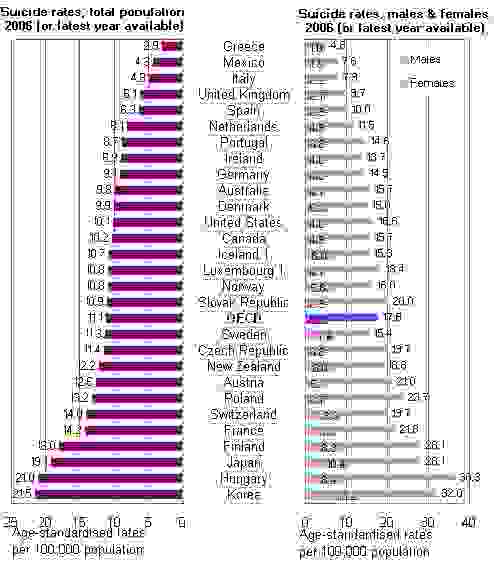
The value of not working
Medical care is one of the most obvious places where it would be objectively better to reduce the workload, particularly for overworked medical students and recent graduates, who are expected to work 36 hour shifts with no sleep. Do you want a tired doctor, or a well-rested one?
But even this suggestion is met with skepticism, with people claiming that such intense workloads build character for those in the medical profession, while also removing those who aren’t up to such a lofty challenge.
Fair enough. But other countries don’t have those ridiculously long 36 hour shifts. And their doctors save even more lives than ours.
Says something, doesn’t it?
The endless cycle continues
Unfortunately I expect the drive toward “success,” along with the general elevation of hard work to saintly status, will continue to operate as a one-way ratchet that will operate indefinitely, particularly given recent economic trends.
As the current economic climate forces people into poverty, they’re expected to work harder to make up for the loss. College students are expected to work second jobs to pay off their draconian student loans. Single parents are expected to work overtime to pay for daycare. Those struck with exorbitant medical bills should simply pick up an extra shift.
It’s not that there’s anything particularly wrong with putting increased effort into this process; it’s perfectly admirable to do so. The problem is how these issues have been building for decades, and show no signs of stopping. Longer hours, more tedious commutes, lower salaries, higher unemployment rates, slashed employee benefits, outsourced workloads, and price inflation have all combined into the perfect storm of maximum stress and minimum financial stability.
And do any of these trends show any sign of reversal? Well, not really. It’s certainly possible that we’ll see better economic trends in coming years, which would reduce the money-related difficulties of those Americans securing those jobs; but it would do little or nothing to reduce the problem of heavy workloads, long hours, or lengthy commutes.
For those trends to be reversed, we’d literally need citizens campaigning for more free time. And how likely is it that their calls for leisure activities will be greeted with respect, rather than disdain?
Not likely. Which is why I think we’ll be stuck with this mess for a long, long time.
Which is why I’m going to end with a Beatle:
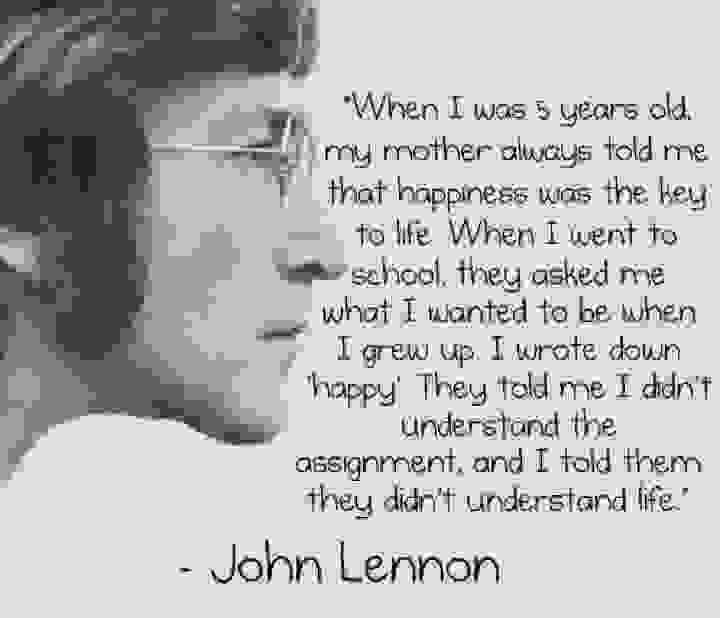




It’s stuff like this that makes me never want to move home. Canada is pretty under the influence of the American dream – we share similar working hours, lack of vacation, massive student loans etc. Friends and family often ask when we’re going to come back home and basically get back to real life. But if real life means literally giving over my life for my salary, then I think I’ll pass.
That’s what bothers me about non-travelers. They think bills and mortgages are “real” life and travel is an escape. But if the economy in the US is the worst it’s been in several decades, why does no one recognize that at some point leaving it behind is perfectly rational?
I don’t think Koreans have high suicides due to work overload. Koreans (and other asian cultures) place a lot of importance on saving face. Whereas, Americans would revel in not saving face, Koreans wouldn’t. And then with saving face comes taking pride in their lives. They may take pride in their career and in their family and so forth. So, if that isn’t working out, they get all suicide-y.
That being said, if anyone travels to escape (and that includes RTW types who travel for months to escape things that happened at home), then yes, you’re doing it wrong. Travel is meant to enhance and to learn new things, not to escape.
I got addicted to all work, no play in the US, so now I am the least vacationing person in my department in Russia – still dont know what to do with those 5 weeks off.
Wouldn’t you agree that, if we brought the jobs in Asia over here, more people would have jobs, and thus there wouldn’t be as much of a stress on the American Population?
Of course, that’s silly.
Stress and money is the American Dream.
Potentially, although they’d need to pay them quite a bit more than China’s minimum wage.
It’s true that Americans work long hours in exchange for shit vacations, shit healthcare, and overpriced rents and services. However, in regards to individual responsibility, I sometimes wonder why there isn’t a more obvious understanding between excess spending and lack of money. For example, every year, my mother calls me up to tell me about her latest purge, how spacious her house looks, and how free she feels–every year.
The American Dream needs a good dose of minimalism.
I agree. Quality over quantity.